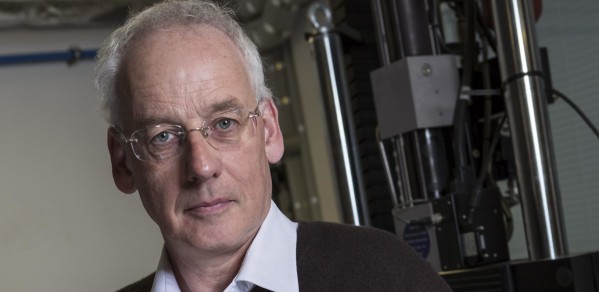
Professor Norman Fleck has been awarded The William Prager Medal 2023 by the Society of Engineering Science (SES) for his outstanding contributions in combining theoretical and experimental research in micro-architected materials, composites, ferroelectrics, and strain gradient plasticity, which have significant engineering implications in aero-engines, defence, and ship-building.
Norman is renowned as the world's leading authority in micro-architected materials, having pioneered the field long before it became popular.
The William Prager medal is awarded annually to an individual who has made exceptional research contributions to theoretical or experimental solid mechanics, or both.
Norman is renowned as the world's leading authority in micro-architected materials, having pioneered the field long before it became popular. His work involves fabricating, testing, and computing material properties, which pushes the boundaries of the field and defines its frontier. In addition to this, he has also made pioneering and sustained contributions to other areas of research, including strain gradient plasticity, metallic foams, and composites.
After obtaining his Ph.D. from Cambridge in 1984 on the topic of metal fatigue, Norman spent a post-doctoral year at Harvard University working with Professor John W. Hutchinson on creep fracture. He returned to Cambridge in 1986 as a lecturer and was later promoted to a Readership and then to a Professorship. He is the Founder-Director of the Cambridge Centre for Micromechanics and served as Head of the Mechanics, Materials, and Design Division for 11 years until 2009.
Norman's research focuses on the mechanical behaviour of solids under different microscopic conditions. His work on novel materials and their applications in various industries, including aerospace, automotive, and construction, has yielded ground-breaking results. For instance, his research on the failure of fiber-reinforced composites, which combines waste cellulose fibres and polymer resin, has yielded important insights.
Norman is also recognised for his studies on metal foams, which have potential applications as impact absorbers in cars, and on stiff but lightweight lattice materials that can be used in aircraft. His research combines theoretical understanding with a passion for experimentation and application, and he has received numerous accolades for his contributions, including the Warner T. Koiter Medal and an honorary doctorate from Eindhoven University of Technology.
Norman is a highly cited author with over 280 journal publications, and he is a Fellow of the Royal Society, Royal Academy of Engineering, International Member of National Academy of Engineering (NAE) in US, Academia Europaea, and the European Academy of Science. He serves on the editorial boards of several engineering journals and has collaborated closely with many US and European groups, having held visiting positions at Harvard University and NASA Langley. Norman's work combines experiments and theory to develop mesoscale and macroscale constitutive models of engineering materials.

